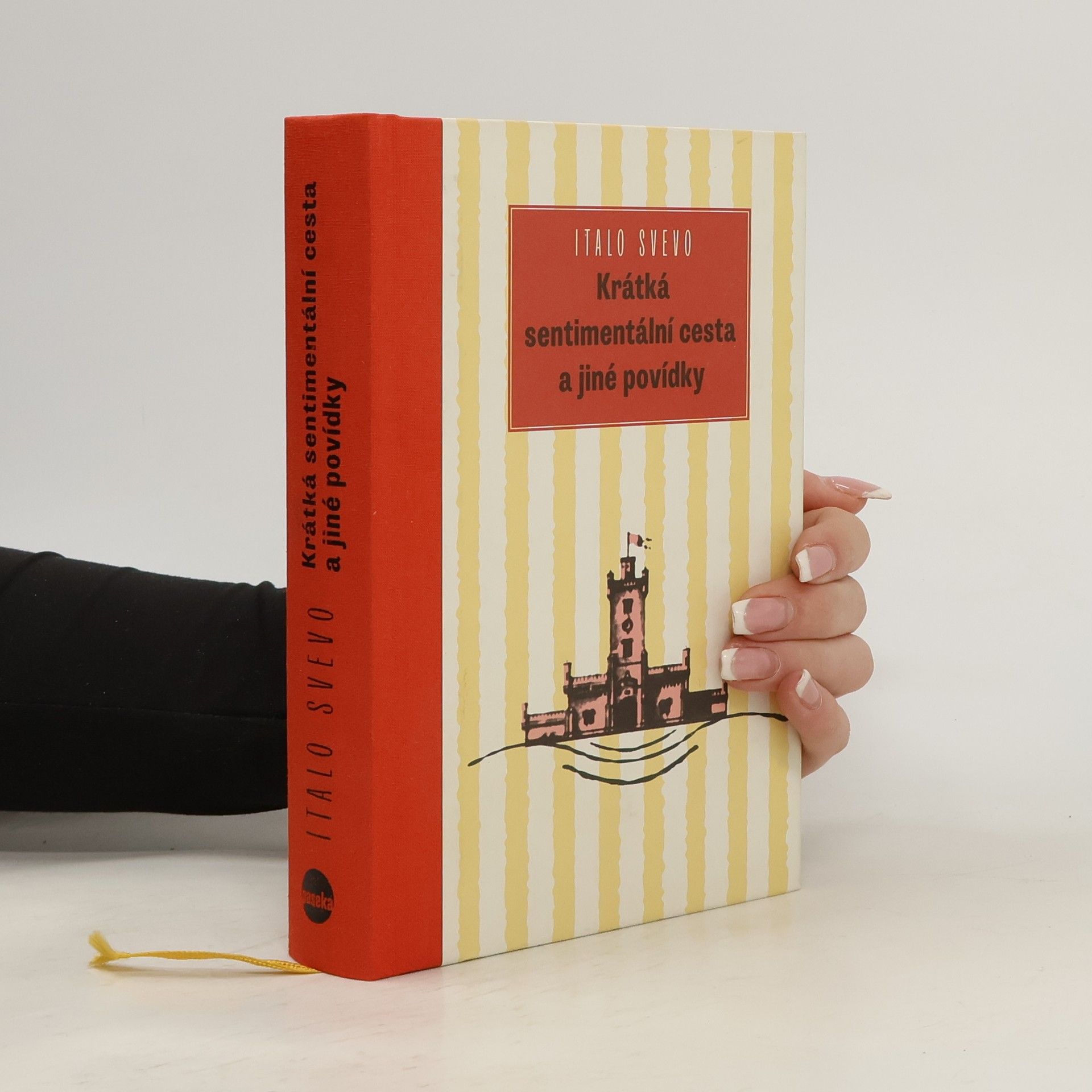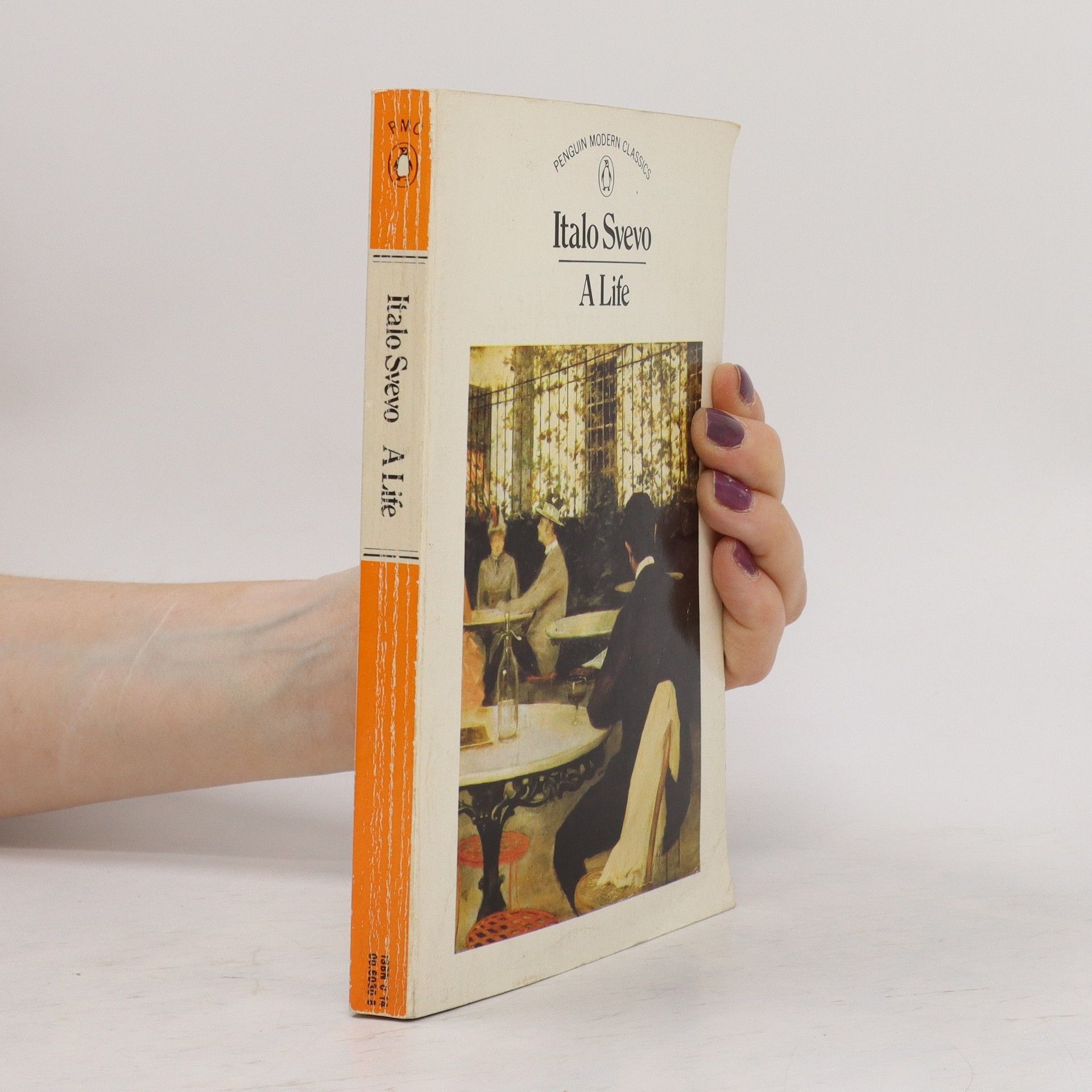Výbor dosud nepřeložených povídek terstského spisovatele mapuje jeho tvůrčí dráhu od prvních textů, jež vznikly ještě před napsáním románů Život pana Alfonsa (1892) a Senilita (1898), přes období takzvaného ticha, kdy se Svevo chystal skoncovat s „tou směšnou a škodlivou věcí, které se říká literatura“, až k brilantním textům vzniklým v autorově posledním tvůrčím období, datovaném od vydání románu Vědomí a svědomí Zena Cosiniho (1923), jenž mu přinesl slávu a úspěch. Některé z posledních povídek lze číst i jako kapitoly či fragmenty připravovaného čtvrtého románu, v němž mělo vyprávění Zena Cosiniho pokračovat, ale který už autor nedostal šanci napsat.
Italo Svevo Knihy
Italo Svevo, vlastním jménem Aron Hector Schmitz, je považován za průkopníka psychologického románu v Itálii. Jeho díla, zejména slavný modernistický román „Vědomí Zena“, ovlivnila literární hnutí a proslavila ho jako jedinečného hlasu své generace. Svevo zkoumal složitost lidské psychiky s pronikavou introspekcí. Jeho psaní vyniká hlubokým vhledem do vnitřního života postav.







Zeno Cosini, dědic zavedené terstské firmy, se zajímá o všechno na světě vyjma o řízení otcovského podniku. Zklamaný otec svěří proto obchod zdatnému a věrnému prokuristovi, a tak se Zeno může soustavně věnovat nesoustavným studiím, dobrým předsevzetím, hře na housle, imaginárním chorobám a jejich rozmanité léčbě. Zkusí i kúru psychoanalytickou a pod vedením lékařovým si začíná vybavovat minulost: dětství, otcovu smrt, bizarní námluvy včetně šťastných i méně šťastných nevěr, rozporné přátelství se svým švagrem a někdejším sokem i jeho katastrofální zakončení. Lékař se pokouší vykládat tyto zážitky podle Freudova předpisu, ale Zeno se vzbouří, odmítá tento klíč, který mu příliš často připadá jako paklíč. Konečně pod nárazem první světové války dospívá Zeno názoru, že nemocný není on, nýbrž svět, společnost, která nutí lidi, aby se zabíjeli, zdokonalovali své zbraně víc a víc, dokud nevymyslí zbraň tak dokonalou, že skoncuje se světem nadobro. Přeložil Jan Vladislav – v tomto vydání pokryt jménem Hany Benešové.
Autor, který je dnes oslavován jako zakladatel italského moderního románu, v románu zachycuje osudy drobného bankovního úředníčka a literáta, jenž se v pětatřiceti letech snaží prožít nezávazné dobrodružství s půvabnou ženou pochybné pověsti, přičemž mu chybí odvaha milovat tuto ženu takovou, jaká je, a věnčí ji ctnostmi. Tato tragikomedie egoistického slabocha se mění v drama, když se žena zamiluje do jeho přítele sochaře, člověka jistého a sebevědomého, a když se do jeho přítele zamiluje i jeho sestra.
Ve svazku jsou zařazeny tři povídky italského spisovatele Itala Sveva, jejichž ústředními motivy jsou problémy dobra a zla, problém stárnutí a rezignace a problém neúspěchu.
První román významného italského romanopisce je umístěn do prostředí banky v italském městečku na sklonku století. Vypráví niterný příběh bankovního úředníčka, který touží po kariéře, zbohatnutí a nedostatek schopností i možností nahrazuje velikášskými sny a fikcemi a nakonec poneúspěchu milostného vztahu k bankéřově dceři hledá cestu v dobrovolné smrti. Kniha zachycuje i četné situace, příznačné pro epochu industrializace italského severu.
A Very Old Man
- 224 stránek
- 8 hodin čtení
A newly translated collection of fiction by the influential Italian modernist, continuing on his landmark work Zeno's Conscience. A Very Old Man collects five linked stories, parts of an unfinished novel that the great Triestine Italo Svevo wrote at the end of his life, after the international success of Zeno’s Conscience in 1923. Here Svevo revisits with new vigor and agility themes that fascinated him from the start—aging, deceit, and self-deception, as well as the fragility, fecklessness, and plain foolishness of the bourgeois paterfamilias—even as memories of the recent, terrible slaughter of World War I and the contemporary rise of Italian fascism also cast a shadow over the book’s pages. It opens with “The Contract,” in which Zeno’s manager, the hardheaded young Olivi, expresses, like the war veterans who were Mussolini’s early followers, a sense of entitlement born of fighting in the trenches. Zeno, by contrast, embodies the confusion and paralysis of the more decorous, although sleepy, way of life associated with the onetime Austro-Hungarian Empire which for so long ruled over Trieste but has now been swept away. As always, Svevo is attracted to the theme of how people fail to fit in. It is they, he suggests, who offer a recognizably human countenance in a world ravaged by the ambitions and fantasies of its true believers.
A Life
- 304 stránek
- 11 hodin čtení
First published in 1893, this novel is concerned with the bourgeois soul and its inability to will or act. The heroes are typically men of business, but with cultural pretensions and he depicts them in their free time when they are not working.
Die Kunst, sich das Rauchen nicht abzugewöhnen
- 320 stránek
- 12 hodin čtení
Eigentlich Ettore Schmitz, geboren am 19. Dezember 1861 in Triest. Besuchte eine deutsche Schule (Segnitz bei Würzburg), erhielt eine kaufmännische Ausbildung in Triest, wurde Bankangestellter und später Unternehmer. Seine ersten beiden Romane setzten sich nicht durch. Entdeckt und gefördert wurde er erst durch James Joyce und Valéry Larbaud. Noch vor dem Durchbruch der Psychoanalyse machte Svevo die psychologische Erforschung des Durchschnittsmenschen und seiner banalen Existenz zum Stoff seiner Romane, in denen er auch bereits die Technik des Bewustseinsstromes ausbildete. Er gilt heute neben Joyce, Proust, Kafka und Musil als bahnbrechender Erzähler der modernen Weltliteratur. Italo Svevo kam am 13. September 1928 bei einem Autounfall ums Leben.



